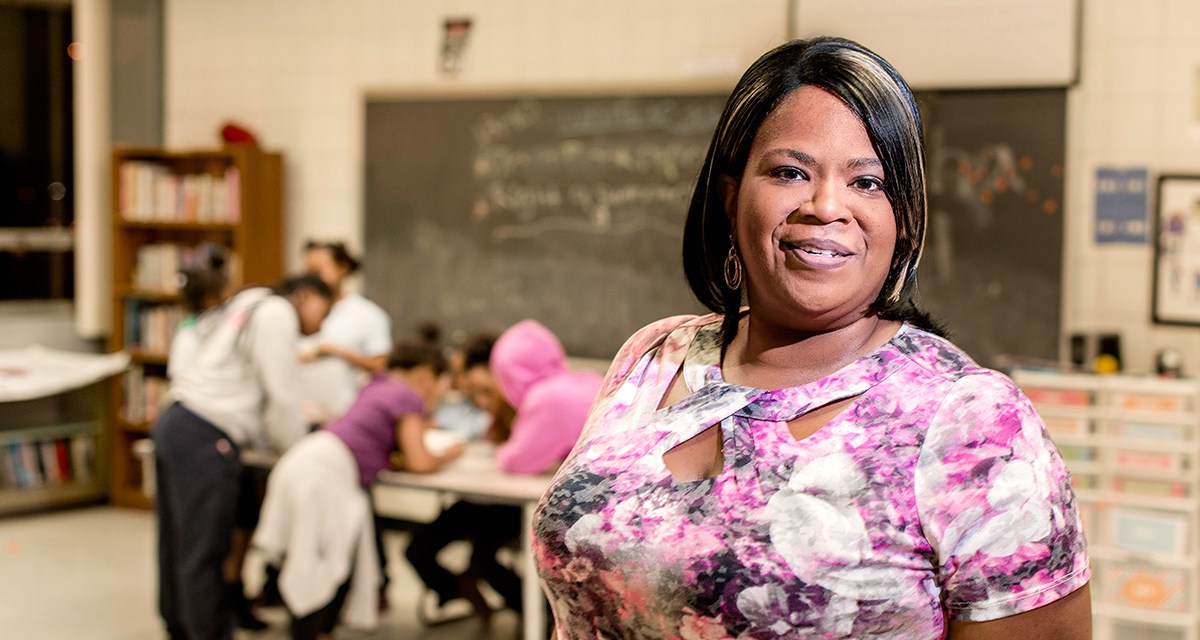She was also a single mother who found the time to instill strong personal values in her daughter while conveying the importance of empowering disadvantaged young women to live healthy, successful lives.
“She was always involved in community work,” explains Elliot. “She saw so many young girls who were falling through the cracks in the court system. She was determined one day to retire and start an organization that addressed the lack of programming for these young women.”
In 2002, Gwen Elliot kept that promise to herself and founded Gwen’s Girls. The program for at-risk women started as an after-school program offering a safe space where young women could build relationships and self-esteem and gain the support of adults. “My mother believed that if young women of color had caring adults to nurture them in their young years, it would change their lives,” says Elliot.
More than 2,500 young women have participated in the program since 2002. The program measures its success in that 100 percent of the women not only improved their academic standing, none ever became pregnant or re-entered the juvenile justice system.
Upon Gwen’s death in 2007, the program continued to thrive but, due to the financial climate for nonprofits over the years, many of the services were decreased or eliminated. In August 2015, Elliot found herself stepping into the role her mother had cultivated.
“My mother saw things in me that I did not see in myself,” says Elliot who admits that she never anticipated one day leading her mother’s organization. Elliot has a doctorate in Nursing Practice from Chatham University and is a psychiatric nurse practitioner.
“Lo and behold, I’ve found that we as children often end up doing exactly what our parents intended for us to do,” she says with a smile.
Today Gwen’s Girls is in the midst of reinvention. Elliot is working to reinvigorate and expand the programming through an educational component that focuses on STEM learning. A STEM-based Makers Club for girls 8-18 years is planned for three sites: the North Hills, Clairton Middle School and Penn Hills. A second club, Pitt Bridge, a health-based science club, allows the girls to explore and research health issues of their own choosing using problem-solving skills.
The overall goal is to expand awareness of STEM-related careers, provide mentorships with local women in technology and science fields and reinforce the STEM concepts that the young women are learning in school.
“It really is their personal club,” says Crystalline Barger, resident social worker, who leads Pitt Bridge for Gwen’s Girls. “This is an opportunity to foster the math and science component and get the girls involved.”
While women continue to remain vastly underrepresented in the STEM workforce despite the fact that they make up nearly half of the college-educated workforce, women of color from at-risk backgrounds suffer from a lack of exposure to these careers. They simply don’t have the same access to resources that women have from more affluent communities, says Elliot. “If we don’t train and teach them, they’re likely to become pregnant or unwed mothers,” she says.
That’s why the mentoring component–exposure to professional women in Pittsburgh who are working in STEM fields–is so important. Gwen’s Girls seeks to expand these mentorships in the coming year.
“Career exploration and STEM programs like those found at Gwen’s Girls are critical to helping girls and young women see the possibilities for greatness beyond their circumstances and beyond their dreams,” says Lynn Brusco, executive director of the Disruptive Health Institute at CMU who is an active supporter and mentor. “Changing the way that girls see themselves and the opportunities that are available to them can genuinely make a difference.”
Elliot agrees. “I feel humble and truly blessed to be able to give back to this spirit of womanhood,” she says. “We need to keep fighting for ourselves and what we believe in. We tell our girls that they can live productive lives.”
This article is part of the Remake Learning initiative, a multimedia partnership between NEXTpittsburgh and WQED Multimedia, Pittsburgh Magazine and WESA. Check out all the stories on Learning Innovation in Pittsburgh.



